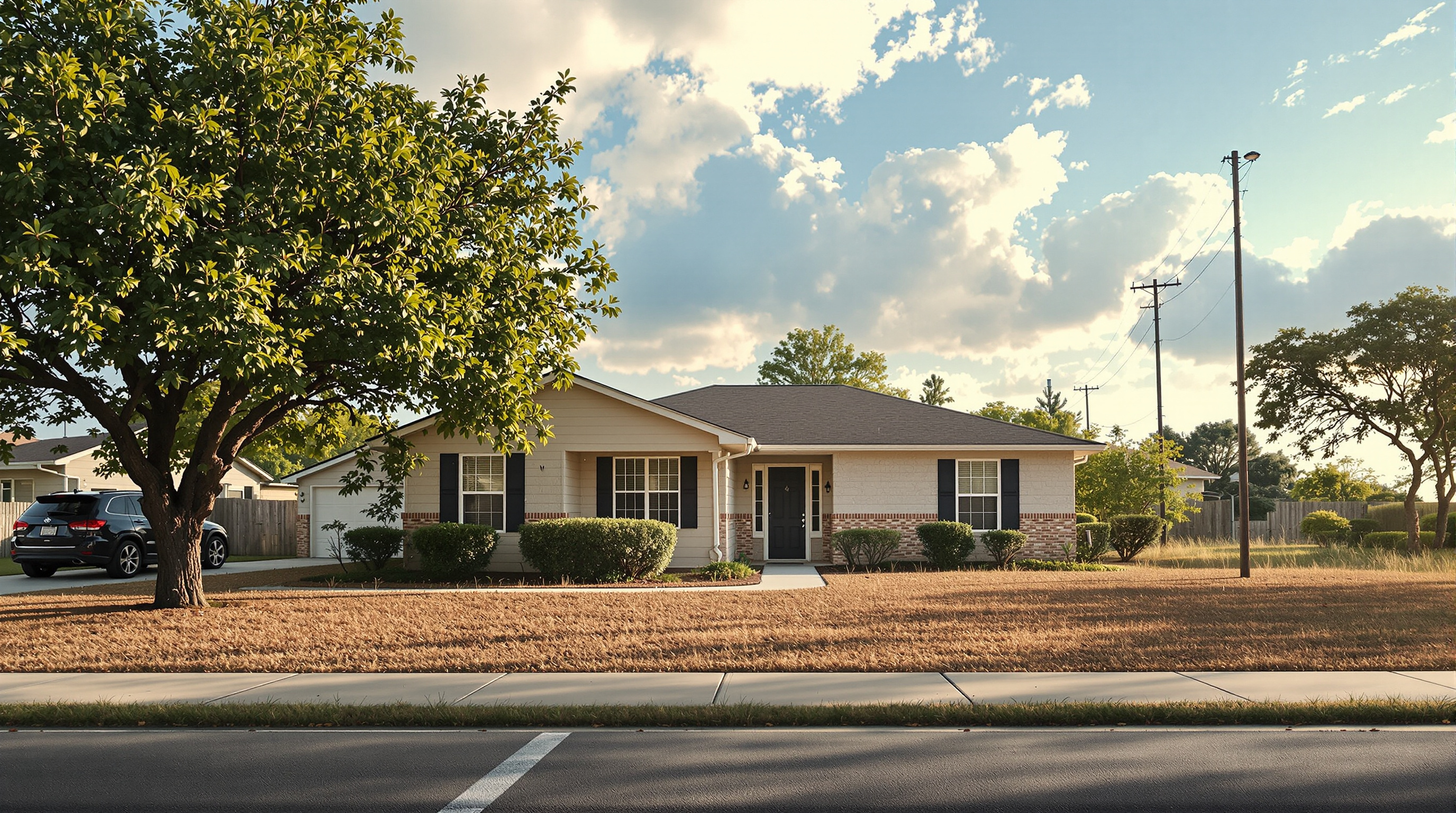Finding good landlord insurance can be a challenge. If you've ever asked, "What is a landlord insurance policy?" or, "As a landlord, what insurance do I need?" you're not alone. The right landlords insurance policy is crucial for protecting your investment, but knowing what to look for is key.
This guide offers landlord insurance advice by breaking down the essential features of a quality policy. Here are eight things to look for when choosing your landlord insurance for rental properties.
1. The Right Landlord Insurance Policy Type
You must first understand the different types of landlord insurance. You should look for a policy form that offers broad protection.
- DP1 (Basic): This is the most limited option, covering only a handful of specific risks.
- DP2 (Broad): This covers more risks than DP1 but is still limited to a named list.
- DP3 (Special): Look for this type of policy. It is often called "open-peril," meaning it covers all risks except for those specifically excluded.
2. Payouts Based on Replacement Cost (RC)
A critical feature to look for is how the policy pays out after a claim.
- Replacement Cost (RC): This is what you want. It covers the full expense to repair or rebuild your property with similar materials at today's prices.
- Actual Cash Value (ACV): This is less desirable, as it pays the replacement cost minus depreciation for age and wear, which may leave you with out-of-pocket costs.
3. Essential Core Coverages
So, what should landlord insurance cover? A strong policy must bundle several key protections. Look for a policy that clearly includes comprehensive landlord insurance coverage:
- Dwelling and Structure Coverage: This protects the main building and other structures like garages or fences.
- Liability Coverage: This protects you if a tenant or visitor is injured on your property and you are held responsible.
- Loss of Rental Income: This reimburses you for the rent you lose if a covered event makes your property unlivable during repairs.
- Insurance for Landlord Fixtures and Fittings: Ensure items you own, like appliances or built-in cabinets, are included in your coverage.
4. A Clear List of Exclusions
No policy covers everything. A good insurance provider is transparent about what is not covered. Look for the policy's specific rules on landlord insurance unoccupied property, as coverage may be reduced if the rental is vacant for an extended period. Also, be aware of common exclusions like floods and earthquakes.
5. Additional Landlord Insurance Coverage Options (Endorsements)
Your property may have unique risks. Look for a provider that offers various landlord insurance options or endorsements to fill coverage gaps. A detailed landlord rent guarantee insurance comparison can help you find the best rent guarantee insurance to protect your income if a tenant stops paying rent.
Standard landlord policies offer comprehensive protection for your rental property, but unique circumstances or risks exist, requiring additional coverage. Consider adding endorsements or riders in these instances to help address any gaps in your policy.
For instance, if your rental property is in an area prone to natural disasters, such as earthquakes or floods, you might want earthquake or flood insurance. This coverage is typically excluded from standard policies.
Another example might be adding coverage for mold and mildew damage if your property is in a humid climate or has a history of moisture or flooding issues.
You can search the Obie risk map to learn about the natural risks in your area and be prepared with the right insurance for your rental property.
.png)
By assessing your property's unique risks and working with your insurance broker to customize your policy with appropriate endorsements, you can ensure your investment has all the protection it needs.
6. A Fair Balance of Premiums and Deductibles
The cost is always a factor. When you get a quote, look for a fair balance between the premium and the deductible. The rate for a standard residential rental, for example, will be very different from that of a commercial landlord insurance policy.
A deductible is the out-of-pocket amount you agree to pay before your insurance coverage kicks in for a covered loss. A premium is the monthly or annual amount you pay for the policy.
There's an inverse relationship between these two factors: a higher deductible often results in a lower premium, and vice versa.
To strike the right balance between affordability and adequate coverage, carefully consider both amounts. While a higher deductible can lower your premium, you'll also be responsible for covering a larger portion of any potential losses.
When evaluating landlord insurance premiums, avoid sacrificing essential coverage to save money. Weigh both the deductible and premium against your financial situation and risk tolerance to secure sufficient protection for your rental property without breaking the bank.
7. Available Discounts
When you landlord insurance compare providers, look for available discounts to lower your premium. Many insurers offer savings for:
- Bundling your policy with other insurance (like home or auto).
- Having a claims-free history.
- Having safety features like smoke detectors or security systems.
8. A Reputable Insurance Provider
A reputable insurance carrier will provide the coverage you need and offer reliable support and assistance when you most need it – when there is a claim. To make an informed decision, take the time to research potential insurance providers and gather information about their track records in the industry.
One effective way to evaluate an insurance company's reputation is by reading customer reviews and testimonials. These reviews can shed light on various aspects of the company's performance, such as responsiveness, fairness in handling claims, and overall customer satisfaction. You can also look at popular investor forums like BiggerPockets to learn about others’ experiences with the provider.
Finding the Right Insurance with Obie
One of the best ways to see if a provider is right for you is to get a quote and see what they can offer for your specific property. When obtaining a quote, it’s important to provide as much information as possible about your property, such as its location, age, size, occupancy status, features, and any specific risks or exposures. You'll also want to make sure you are asking each provider the right questions about their offering. This will help insurers accurately assess your risk profile and put together a suitable policy customized to your unique needs.
Obie offers an easy-to-use online quote system that will give you a customized quote for your property in minutes. Landlords have insured more than $4 Billion in property with Obie, making us a simple and complete solution for tailored coverage and peace of mind. To see what we can offer you, get started with a quote today.
FAQs about Things to Look for in a Good Landlord Insurance Policy
What factors should I consider when budgeting for the cost of a policy?
When considering the cost, remember that it's not a fixed price. You should consider how the following factors will impact your premium:
- Property & Location: The age, construction type, and location (e.g., proximity to a fire station or risks of natural disasters) of your property.
- Coverage Amount: The more coverage you select, the higher the cost.
- Deductible: A higher deductible (the amount you pay on a claim) will lower your premium, but you must consider if you can comfortably afford that out-of-pocket expense.
What should I consider regarding coverage for tenant-caused damage?
This is a critical consideration. You should check if a policy differentiates between accidental and intentional damage. While many policies cover accidental damage (like a kitchen fire), they may exclude malicious acts or vandalism by a tenant unless you purchase specific additional coverage. Always consider that normal wear and tear is never covered by any policy.
Do I Need Special Landlord Insurance if I Have Tenants with Pets?
Many landlord insurance policies exclude damages caused by animals, so it's important to check the policy documents carefully. In addition, landlords should follow some best practices to minimize the risk of pet-related damage:
- Require all renters with pets to sign a pet addendum that outlines the rules and regulations regarding pets in the rental unit.
- Collect a pet deposit from tenants with pets. This deposit can be used to cover any damages caused by the pet.
- Do not allow aggressive breeds of dogs in the rental unit.
- Require tenants to provide proof of liability insurance that would cover injury caused by their pet.
- Inspect the rental unit regularly to look for any pet-related damage.
By following these best practices, landlords can minimize the risk of pet-related damages and ensure their property is adequately covered by insurance.
Are there special situations I need to consider when getting insurance?
Yes. Your insurance needs can change based on how you rent the property. You should always consider discussing these situations with your insurance provider:
- Renting a room in your own home: Your homeowners policy may need a special endorsement to cover the added liability of having a tenant.
- Short-term rentals (e.g., Airbnb): These often require a specific commercial or short-term rental policy, as standard landlord policies may not cover high tenant turnover.
- Unoccupied property: If the property will be vacant for an extended period (e.g., over 30 days), you must consider if your policy's coverage will be reduced or voided.
How Can I Save Money on Landlord Insurance?
There are a few things landlords can do to reduce the cost of their landlord insurance:
- Raise your deductible. A higher deductible means you'll have to pay more out of pocket if you have a claim, but it will also lower your premium.
- Make sure your property is in good repair and up to date on all maintenance. This will help you get discounts for having a "well-maintained" property.
- If you have multiple properties, insure them with the same carrier to get a discount.
- Most importantly, shop around and compare rates from different insurers.







